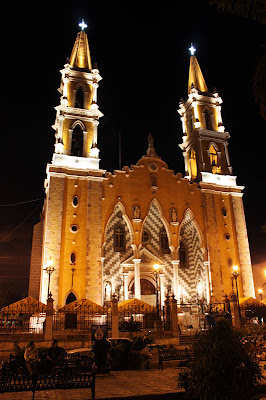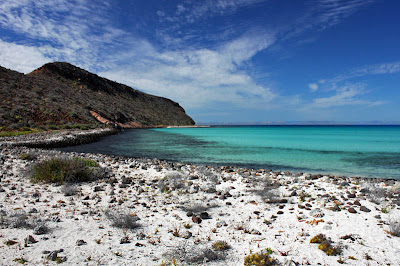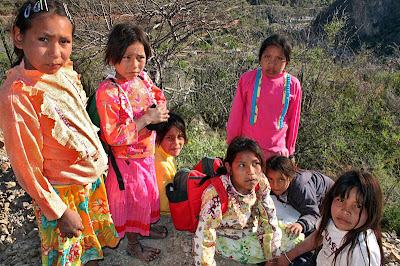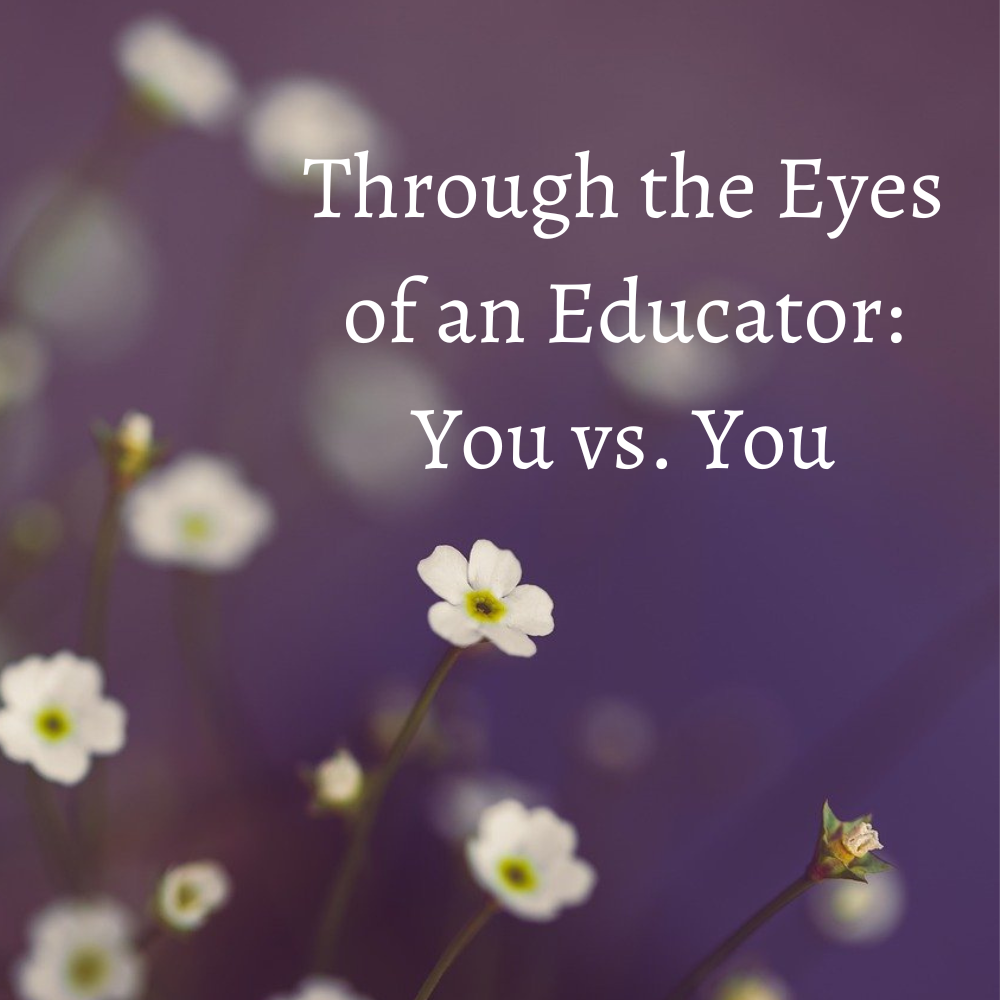Hole in the Donut: An Extraordinary Journey
I've got the most extraordinary journey to share with you today. It's a journey of figuring out the important things in life, and creating a new life that embraces them. Barbara Weibel, of Hole in the Donut, shares on her site her incredible life journey, from working 70 hours a week in jobs that weren't soul-fulfilling, to healing from chronic Lyme disease, to changing her life and focusing on travel, experiences, and the wonderful people she meets. It truly is a joy to dig in to the Hole in the Donut - gorgeous photos, excellent stories, and a sense of humanity in travel that is so often missing in this fast-paced world. We were lucky enough to catch Barbara during her travels, and chat about her site, travel tips, and more. Here's what she had to say...
WE: Please tell us about your site, Hole in the Donut...
BW: HITD is an intensely personal travelogue about the places I visit, people I meet, and things I learn in the process of traveling.

Catedral Basilica de la Inmaculada Concepcion in Mazatlan, Mexico
WE: What was the genesis of your site?
BW: I spent many years in corporate life, doing what was “expected of me" and growing more miserable with each passing day. Finally, a severe illness made me realize that I could die and never do any of the things I had always dreamed about. For me, that was writing, photography and travel. It took me a year to recover, but in 2007 I fled corporate life, slung a backpack over my shoulder, and traveled around the world solo for six moths. My blog was originally intended as a means for my friends to keep up with me while I traveled, but by the time I returned I had built up a significant audience. At the same time, the travel bug bit me so hard that I was unable to return to my previous stressful life. Instead, I decided to be true to myself and pursue only those things about which I am passionate. It’s now 3.5 years later, and Hole In The Donut has become one of the top independent travel blogs in the world, keeping me traveling more or less perpetually.
WE: What are your top travel tips?
BW: a) Repeat after me. “There is nothing to fear. There is nothing to fear. There is nothing to fear.” I travel solo all over the world, including some extremely remote places. The question I am most often asked is, “Aren’t you afraid?” My answer is always, “There is nothing to fear.” I approach travel with the belief that most people in the world are good and kindhearted and will go out of their way to help you, and I combine that philosophy with a lot of common sense and street smarts (I don’t travel to countries that are terribly unstable, such as Pakistan, Iraq, and Afghanistan; I don’t flash money around; I don’t travel with jewelry, etc.). That combination has always served me well.
b) Learn something about the culture, customs, and taboos of the country you will be visiting before you leave, including how to say hello, please, and thank you in the local language. After arriving, meet the local people and participate in the local culture, whether through a brief home stay, a cooking class, or a day spent volunteering at a local school or non-profit organization. At all costs, avoid all-inclusive resorts that “strongly suggest” you not leave the property.
c) Learn to roll with the punches. Especially if traveling overseas, you will encounter challenges. You might have to wait 12 extra hours for your room to be ready, the Internet might be unavailable for two days, or a taxi driver may say he knows the way and then become hopelessly lost (all of the above have happened to me). It does no good to get frustrated or angry because these situations are beyond your control. Better to just consider the experience as a good story to tell when you get back home and enjoy the ride.
d) When traveling to a country where you do not speak the language, pick up several business cards from the hotel upon checking in. After a day of exploring, you can simply hand the card to any taxi driver rather than trying to find one who speaks English.
e) Don’t use Travelers Cheques. They are extremely difficult to cash in most places and impossible in others. Credit cards are not the answer either, since they now charge up to 3% foreign transaction fee on any purchase (the exception being Capital One). Savvy travelers use debit cards and hit the ATM machine upon arrival in a foreign country. Not only does this avoid the huge fees (some banks charge a 1% fee for use of their debit cards in foreign countries, but that’s still 1/3 of the credit cad fees), it also provides you with local currency on the spot, without having to pay an exchange fee. And banks provide the very best exchange rates of all, so even if your bank charges a nominal fee, you’ll save in the long run.

Corralito Beach on Espiritu Santo Island La Paz Mexico
WE: You're heading into a year-long trip around the world - what have been some of your challenges (and rewards) in the planning?
BW: A most interesting question, especially when I compare the planning for my trip in 2007 to my current travels. Back then, I bought a round-the-world (RTW) ticket and booked every major port of entry, although aside from my safari in Tanzania and a short stay in Zimbabwe, which had to be pre-booked, on the day I departed I had only six nights pre-booked in hotels. Prior to leaving, I spent days researching every destination, determining what sites I might want to see, etc. Although some of it happened as planned, much of it changed along the way. Since then, I have accepted that I am just a curious wanderer who is also a tad commitment-phobic. This trip began with a flight into Mazatlan, Mexico, a list of places in Mexico, Central and South America that I might like to visit, and a loose itinerary that is subject to change at a moment’s notice. Within the first week, the itinerary went out the window, and I’m just traveling from one place to another as the spirit moves me, by bus, train, and boat. With each major bout of long-term travel, my planning grows less and less and my itinerary looser and looser. For instance, I fly to China on September 1st to attend the Woirld Expo and plan to travel for 5-6 months, yet this time I have purchased a one-way ticket and have only a list of coutries I might visit. None of this is challenging for me because I thrive on it, but the benefits are many and have not changed since I began this journey: I get to experience things that few people in the world will see or do, I make the most amazing friends along the way, and best of all, for the first time in my life I am truly happy.
WE: What are you exploring right now?
BW: At the moment, I am in the Urique Canyon, the deepest canyon in the complex known as Copper Canyon, Mexico. This very remote part of the world is inhabited by nomadic Tarahumara Indians who are so reclusive that many still live in caves. I planned to spend 3-5 days and have already been here 10 days, partially because of the stunning beauty, but also because the way of life here is incredibly tranquil and serene. Yesterday I walked four hours to the tiny village of Guadeloupe to interact with some indigenous families, attempting to win their acceptance. Tomorrow, I have been invited to attend a Tarahumara birthday party, a rare honor for an outsider.

Tarahumara Indian Girls on road to Guadalpe in Copper Canyon, Mexico
WE: You gave up the "rat race" - what have been the challenges and benefits of leaving corporate life?
BW: Like most people in the U.S., I was addicted to “stuff.” I had a big house, nice car, and a substantial income. I also had a huge mortgage payment and all the stress inherent in corporate life. The challenge was in releasing my fear and giving up the security of a regular income for the uncertainty of a career as a writer and photographer. It has not been an easy path. I constantly struggle to make ends meet, but I remind myself often that money never made me happy.
WE: How do you suggest travelers give back, while abroad?
BW: Until now, what has worked best for me is to help people one-on-one. Sometimes that means buying a meal, sometimes it’s fixing their computer. Occasionally I am called on to deliver a message of recovery from alcoholism and addiction. I have often felt that I need to do more but hadn’t quite figured out exactly what I was supposed to do. I have no construction ability, so I can’t pound nails. I don’t think I’m cut out to teach English to children. I don’t want to give money to some large organization where a large chunk of the donations are used for administrative purposes. I was stymied by this issue. However, just before leaving on this trip, I learned of an organization in Guatemala City named Safe Passage (safepassage.org) that has set up schools to educate the hundreds of children who are living atop the city dump and picking through garbage for their food and clothes. Suddenly, it dawned on me that I can do what I do best - write about and promote worthy causes. I contacted the director of the organization, who has agreed to arrange for a personal tour so that I can produce a video about the work they do. I intend to promote their efforts in any way possible, along with one or two other non-profit entities that are still to be determined. I am especially interested in the issue of water, as I believe it is the world’s next scarce resource, and hope to find an organization that is helping indigenous cultures to secure water sources and build infrastructure.
WE: Is there anything else you'd like to share with us?
BW: It is my enduring belief that the better we get to know one another, the less likely we are to want to kill one another. We give a lot of lip service to world peace, but there can be no peace until we accept one another unconditionally. In my plan for world peace, every student would be required to spend a year abroad working in a NGO or government aid program, immersed in a culture other than their own. This new generation would return with an understanding that cultural differences need not be feared, and a lifelong commitment to philanthropic works.
WE: Thanks so very much, Barbara! I love your site, and highly recommend it to our readers.
For more information, please see:
http://holeinthedonut.com/
All photos courtesy and copyright of Barbara Weibel.
-

- Log in to post comments



















